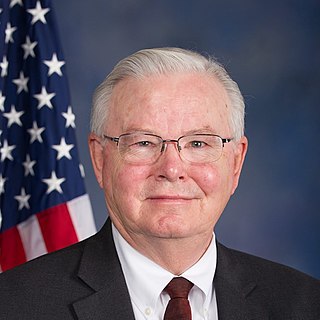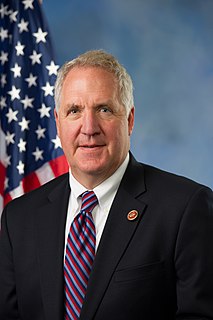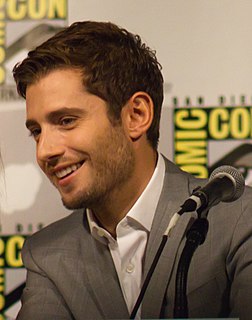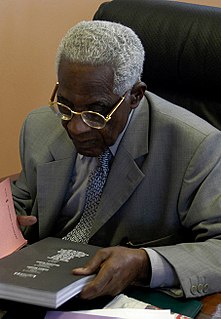A Quote by Joe Barton
I would point out that if you're a believer in the Bible, one would have to say the Great Flood is an example of climate change and that certainly wasn't because mankind had overdeveloped hydrocarbon energy.
Related Quotes
Just wait and see this stuff play out as it does. But if, for example, why would he say some human activity linked to climate change when he has gone on record as saying that he doesn't believe it and we're gonna get people out of the EPA who do and we're gonna stop playing games with this. Why would he say it? [Donald Trump] wants to build a bridge with the opposition. This is why you don't see me at Trump Tower going up and down the elevators.
People vote against their own interests that all the time. But when you do the polling in the U.S., it has gone from less than 50 percent who thought climate change was real to 70-odd percent. And if you listen to the Republicans in Congress, they used to say, "Oh, climate change doesn't exist." Then they switched to "Well, it exists, but it's not man-made," to "Well, I'm going to address the issue." Why? Because when they go home, the local constituent says, "Wait a second. What are you talking about? We just had a flood. We haven't had rain in a long time." They can't get away from it.
... universal adoption of the institutions of the free society would better enable adaptation to climate both now and in the future. It would also ensure that, if at some point in the future, a real catastrophe, whether human-induced or otherwise (including climate change), does loom on the horizon, humanity would be in a better position to address it.
With climate change, of course there are things to grieve. I certainly grieved that the vision that I had for my life, that I would be a clinical psychologist and write books and have a family, that that was not going to happen, because if the world is collapsing around you, it just doesn't seem that appealing anymore.
The Earth would only have to move a few million kilometers sunward-or starward-for the delicate balance of climate to be destroyed. The Antarctic icecap would melt and flood all low-lying land; or the oceans would freeze and the whole world would be locked in eternal winter. Just a nudge in either direction would be enough.
People who think they have no belief quite often say they want to pray but they do not know who or what they could be praying to. Aquinas would not say to such people, 'Ah, but you see, if you became a believer, a Christian, we would change all that. You would come to understand to whom you are praying.' Not at all. He would say to such people, 'If you became a Christian you would stop being surprised or ashamed of your condition. You would be happy with it. For faith would assure you that you could not know what God is until he reveals himself to us openly.'
My experience as energy and climate change secretary - in the months I spent battling George Osborne over the budget for investment in low carbon, and in the daily attrition with Eric Pickles over onshore wind - was that many Conservatives simply regard their commitment to climate change action as something they had to say to get into power.
If the entire world decided to become vegan tomorrow, a whole host of the world's problems would disappear overnight. Climate change would decrease by 25 percent, deforestation would cease, rainforests would be preserved, our water- and air-quality would increase, life-expectancy rates would increase, and our rates of cancer would plummet, so certainly, with that one action of becoming vegan you are quite effectively making the world a better place.
I would rediscover the secret of great communications and great combustions. I would say storm. I would say river. I would say tornado. I would say leaf. I would say tree. I would be drenched by all rains, moistened by all dews. I would roll like frenetic blood on the slow current of the eye of words turned into mad horses into fresh children into clots into curfew into vestiges of temples into precious stones remote enough to discourage miners. Whoever would not understand me would not understand any better the roaring of a tiger.
Let's just say that if these scientist had been using their brilliance for good instead of evil, cars would run off water vapor and leave fresh compost behind them; no one would be hungry; no one would be ill; all buildings would be earthquake-, bomb-, and flood-proof; and the world's entire economy would have collapsed and been replaced by one based on the value of chocolate.

































